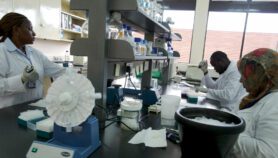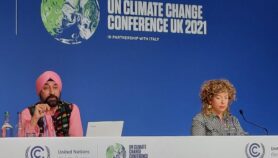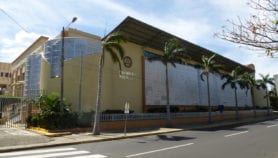By: Linda Nordling
Send to a friend
The details you provide on this page will not be used to send unsolicited email, and will not be sold to a 3rd party. See privacy policy.
[CAPE TOWN] African and European heads of state are expected to endorse plans for a high-level science policy dialogue between the two continents when they meet in Libya next week (29–30 November).
The agreement, which has already received support from African and European science ministers, could lead to them meeting regularly — bridging a perceived gap in relations between the two continents when it comes to the engagement of member states with science projects.
"We don’t have a senior dialogue between Europe and Africa like we have with the Gulf countries and South-East Asia," said Fadila Boughanemi, an official in the European Commission’s research directorate.
"The idea is to establish such a dialogue at the ministerial level."
The Libya meeting is the third summit under the European Union (EU)–Africa partnership, which aims to strengthen collaboration in eight policy areas, including "science, information society and space".
The eighth area — known as the eighth partnership — is widely regarded as one of the most successful areas of the EU-Africa partnership, with more than
€100 million (US$130 million) having been raised for science and technology projects so far.
One project under the eighth partnership is the African Research Grants programme — to be administered by the African Union (AU) Commission — whose long-term vision is that it will expand into an African version of the EU Framework programmes for research and development, which allots billions of euros each year to projects conducted jointly between European countries.
A 2011–2013 action plan for this partnership will be adopted at the Libya summit.
But questions have been raised about the eighth partnership because of a perception by some of Europe’s national development agencies that they are excluded.
"It has been difficult to engage with the process," said Tomas Kjellqvist, a research and innovation policy specialist at the Swedish International Development Cooperation Agency (SIDA), adding that it has been hard to persuade the Swedish government to push for SIDA to take a national lead in developing the eighth partnership.
Development officials in the United Kingdom are also said to be uncomfortable with Brussels taking control of the EU−Africa research collaboration, although France is said to be a strong supporter of the eighth partnership.
The lack of engagement at the member state level is a problem, according to Bongani Maseko, an official from the South African Department of Science and Technology.
"The partnership is meant to work on three levels. The EU and AU commissions are working well together, as are the joint expert groups that have been formed. But at the level of member states the interaction is not working very well," he said.
There are also doubts about the equality of the EU-Africa partnership. A report from the Europe-Africa research network this year identified "assymetries" in the partnership and an "ownership deficit" of the process in Africa.
"I have not seen much creativity in shaping a new type of relationship," said Calestous Juma, international development expert at Harvard University, United States.













